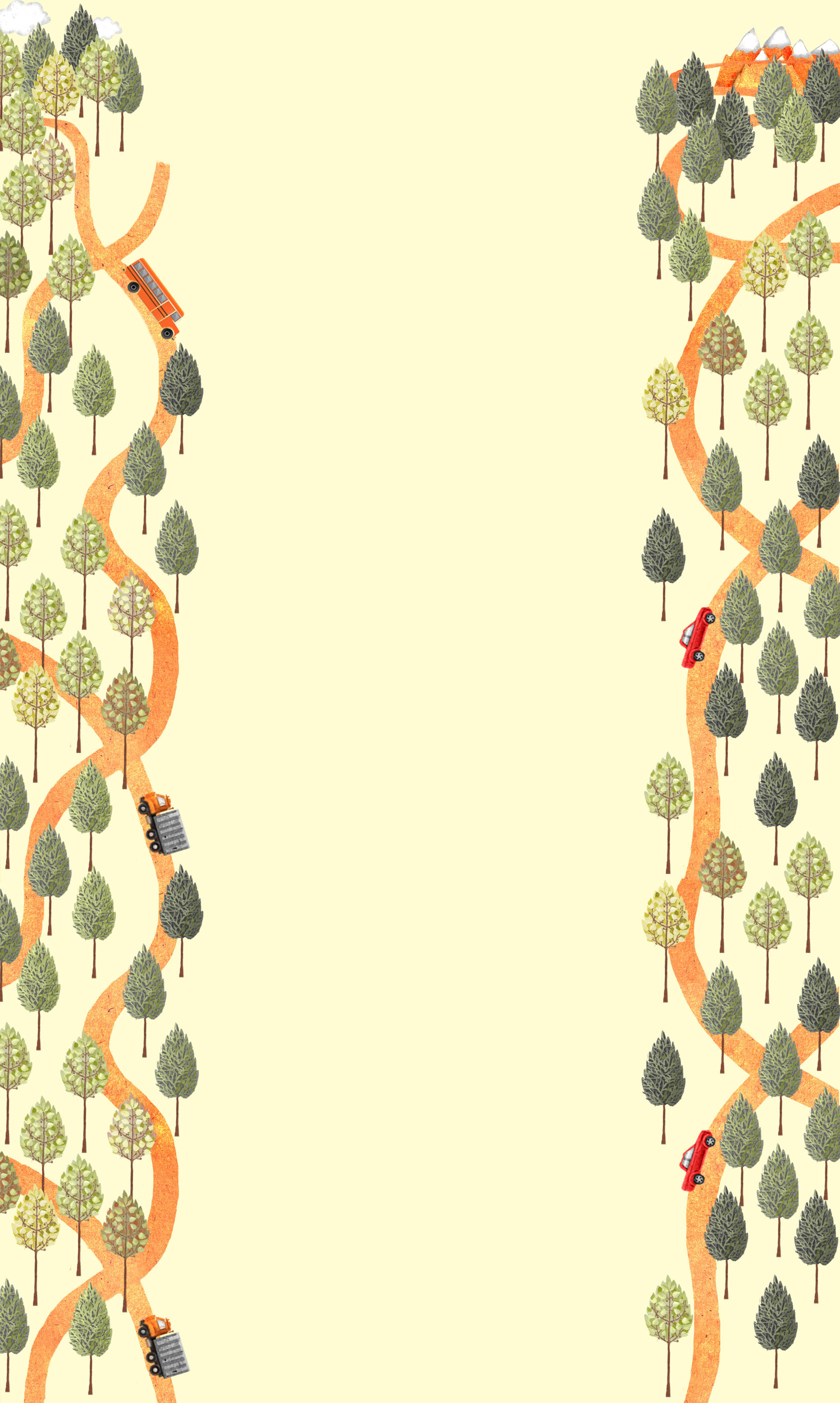


Lesson 19
In which you muse over
the importance of cakes
the importance of cakes
CONTENTS OF THE VIDEO LESSON
00:00 – intro
00:30 –the verb "to be" – להיות (belongs to GROUP II)
►►►in the PAST TENSE
►►►First – practice the past tense for the more familiar verbs ►►►– רוצה, שותה
►►►Then, practice the verb "to be" - it is similar!
►►►Have you been pretty when you were a child? היית יפה
►►►כשהיית קטנה?
►►►HAYIT YAFA KSHEHAYIT KTANA?
►►►Where have you been? – EIFO HAYITEM? - איפה הייתם?
►►►He was crazy – HU HAYA MESHUGA - הוא היה משוגע
►►►הספר היה מעניין*
►►►I made a mistake at the video saying מעניין instead of חכם ►►►HE was on time – HU HAYA BAZMAN - הוא היה בזמן
►►►She was tired – HI HAYTA AYEFA - היא הייתה עייפה
►►►She was pretty – HI HAYTA YAFA - היא הייתה יפה
►►►They were not at home – HEM LO HAYU BABAIT - הם לא
►►►היו בבית
►►►They were friends – HEM HAYU KHAVERIM - הם היו חברים
15:00 – why are we reviewing it now? ;)
►►►Because "was" is used not only to indicate simple past!
►►►There are, actually, 3 meanings that it conveys!
14:50 - #1
►►►I was …ing – HAYITI + verb in pr. Tense
►►►I was writing when he came - הייתי כותב כשהוא בא
►►►I was driving/riding when he called - הייתי נוסע כשהוא
►►►התקשר
►►►I was reading when he called - הייתי קוראת כשהוא התקשר
16: 10 – #2
►►►I used to - HAYITI + verb in pr. Tense
►►►I used to write books when I lived in Japan - הייתי כותבת
►►►ספרים כשגרתי ביפן
►►►I used to like tuna fish, but today I don't like it הייתי אוהבת
►►►טונה, אבל היום אני לא אוהבת אותה
►►►I used to ask many questions when I was little - הייתי
►►►שואלת הרבה שאלות כשהייתי קטנה
20:12 – #3
►►►I would - HAYITI + verb in pr. Tense
►►►I would do it, but… - הייתי עושה את זה, אבל...
►►►I would have continued, but I don't have time - הייתי
►►►ממשיכה, אבל אין לי זמן
►►►I would like to go, but I don't have time - הייתי רוצה לנסוע,
►►►אבל אין לי זמן
►►►I would go, but I don't have time - הייתי נוסעת, אבל אין לי זמן
21:52 – practice
►►►We used to be friends, but we are not friends today - היינו
►►►חברים, אבל אנחנו לא חברים היום
►►►We would speak, but we don't have time - היינו מדברים,
►►► אבל אין לנו זמן
►►►You would think that it is correct, but it's not correct - ►►►הייתם חושבים שזה נכון, אבל זה לא נכון
►►►used to VS would
►►►He used to work in Brazil - הוא היה עובד בברזיל
►►►He would have worked in Brazil, if he wanted to - הוא היה
►►► עובד בברזיל, אם הוא היה רוצה
►►►used to VS would
►►►She used to draw when she was small - היא הייתה מציירת
►►► כשהיא הייתה קטנה
►►►She would be drawing if she had time - היא הייתה מציירת
►►► אם היה לה זמן
►►►We would have called if we knew your phone number - ►►►היינו מתקשרים אילו ידענו את מספר הטלפון שלך
26:46 – the passive …ED
►►►is expressed with the following pattern:
►►►[__ __ U __]
►►►Examples of GROUP III verbs in the "…ED" form
►►►Closed – LISGOR -> SAGUR - לסגור -> סגור
►►►Opened – LIFTOAKH -> PATUAKH - לפתוח -> פתוח
►►►Written – LIKHTOV -> KATUV - לכתוב -> כתוב
29:48 – examples of II verbs in the "…ED" form
►►►done – LAASOT -> ASUI - לעשות -> עשוי
00:30 –the verb "to be" – להיות (belongs to GROUP II)
►►►in the PAST TENSE
►►►First – practice the past tense for the more familiar verbs ►►►– רוצה, שותה
►►►Then, practice the verb "to be" - it is similar!
►►►Have you been pretty when you were a child? היית יפה
►►►כשהיית קטנה?
►►►HAYIT YAFA KSHEHAYIT KTANA?
►►►Where have you been? – EIFO HAYITEM? - איפה הייתם?
►►►He was crazy – HU HAYA MESHUGA - הוא היה משוגע
►►►הספר היה מעניין*
►►►I made a mistake at the video saying מעניין instead of חכם ►►►HE was on time – HU HAYA BAZMAN - הוא היה בזמן
►►►She was tired – HI HAYTA AYEFA - היא הייתה עייפה
►►►She was pretty – HI HAYTA YAFA - היא הייתה יפה
►►►They were not at home – HEM LO HAYU BABAIT - הם לא
►►►היו בבית
►►►They were friends – HEM HAYU KHAVERIM - הם היו חברים
15:00 – why are we reviewing it now? ;)
►►►Because "was" is used not only to indicate simple past!
►►►There are, actually, 3 meanings that it conveys!
14:50 - #1
►►►I was …ing – HAYITI + verb in pr. Tense
►►►I was writing when he came - הייתי כותב כשהוא בא
►►►I was driving/riding when he called - הייתי נוסע כשהוא
►►►התקשר
►►►I was reading when he called - הייתי קוראת כשהוא התקשר
16: 10 – #2
►►►I used to - HAYITI + verb in pr. Tense
►►►I used to write books when I lived in Japan - הייתי כותבת
►►►ספרים כשגרתי ביפן
►►►I used to like tuna fish, but today I don't like it הייתי אוהבת
►►►טונה, אבל היום אני לא אוהבת אותה
►►►I used to ask many questions when I was little - הייתי
►►►שואלת הרבה שאלות כשהייתי קטנה
20:12 – #3
►►►I would - HAYITI + verb in pr. Tense
►►►I would do it, but… - הייתי עושה את זה, אבל...
►►►I would have continued, but I don't have time - הייתי
►►►ממשיכה, אבל אין לי זמן
►►►I would like to go, but I don't have time - הייתי רוצה לנסוע,
►►►אבל אין לי זמן
►►►I would go, but I don't have time - הייתי נוסעת, אבל אין לי זמן
21:52 – practice
►►►We used to be friends, but we are not friends today - היינו
►►►חברים, אבל אנחנו לא חברים היום
►►►We would speak, but we don't have time - היינו מדברים,
►►► אבל אין לנו זמן
►►►You would think that it is correct, but it's not correct - ►►►הייתם חושבים שזה נכון, אבל זה לא נכון
►►►used to VS would
►►►He used to work in Brazil - הוא היה עובד בברזיל
►►►He would have worked in Brazil, if he wanted to - הוא היה
►►► עובד בברזיל, אם הוא היה רוצה
►►►used to VS would
►►►She used to draw when she was small - היא הייתה מציירת
►►► כשהיא הייתה קטנה
►►►She would be drawing if she had time - היא הייתה מציירת
►►► אם היה לה זמן
►►►We would have called if we knew your phone number - ►►►היינו מתקשרים אילו ידענו את מספר הטלפון שלך
26:46 – the passive …ED
►►►is expressed with the following pattern:
►►►[__ __ U __]
►►►Examples of GROUP III verbs in the "…ED" form
►►►Closed – LISGOR -> SAGUR - לסגור -> סגור
►►►Opened – LIFTOAKH -> PATUAKH - לפתוח -> פתוח
►►►Written – LIKHTOV -> KATUV - לכתוב -> כתוב
29:48 – examples of II verbs in the "…ED" form
►►►done – LAASOT -> ASUI - לעשות -> עשוי
CONTENTS OF THE VIDEO LESSON
00:00 – intro
00:30 –the verb "to be" – להיות (belongs to GROUP II) in the PAST TENSE First – practice the past tense for the more familiar verbs – רוצה, שותה Then, practice the verb "to be" - it is similar! Have you been pretty when you were a child? היית יפה כשהיית קטנה? HAYIT YAFA KSHEHAYIT KTANA? Where have you been? – EIFO HAYITEM? - איפה הייתם? He was crazy – HU HAYA MESHUGA - הוא היה משוגע הספר היה מעניין* I made a mistake at the video saying מעניין instead of חכם HE was on time – HU HAYA BAZMAN - הוא היה בזמן She was tired – HI HAYTA AYEFA - היא הייתה עייפה She was pretty – HI HAYTA YAFA - היא הייתה יפה They were not at home – HEM LO HAYU BABAIT - הם לא
היו בבית They were friends – HEM HAYU KHAVERIM - הם היו חברים
15:00 – why are we reviewing it now? ;) Because "was" is used not only to indicate simple past! There are, actually, 3 meanings that it conveys!
14:50 - #1: I was …ing – HAYITI + verb in pr. Tense I was writing when he came - הייתי כותב כשהוא בא I was driving/riding when he called - הייתי נוסע כשהוא התקשר I was reading when he called - הייתי קוראת כשהוא התקשר
16: 10 – #2: I used to - HAYITI + verb in pr. Tense I used to write books when I lived in Japan - הייתי כותבת ספרים כשגרתי ביפן
I used to like tuna fish, but today I don't like it הייתי אוהבת טונה, אבל היום אני לא אוהבת אותה I used to ask many questions when I was little - הייתי שואלת הרבה שאלות כשהייתי קטנה
20:12 – #3: I would - HAYITI + verb in pr. Tense I would do it, but… - הייתי עושה את זה, אבל... I would have continued, but I don't have time - הייתי ממשיכה, אבל אין לי זמן I would like to go, but I don't have time - הייתי רוצה לנסוע, אבל אין לי זמן I would go, but I don't have time - הייתי נוסעת, אבל אין לי זמן
21:52 – practice: We used to be friends, but we are not friends today - היינו חברים, אבל אנחנו לא חברים היום We would speak, but we don't have time - היינו מדברים, אבל אין לנו זמן You would think that it is correct, but it's not correct - הייתם חושבים שזה נכון, אבל זה לא נכון used to VS would He used to work in Brazil - הוא היה עובד בברזיל He would have worked in Brazil, if he wanted to - הוא היה עובד בברזיל, אם הוא היה רוצה used to VS would She used to draw when she was small - היא הייתה מציירת כשהיא הייתה קטנה She would be drawing if she had time - היא הייתה מציירת אם היה לה זמן We would have called if we knew your phone number היינו מתקשרים אילו ידענו את מספר הטלפון שלך
26:46 – the passive …ED is expressed with the following pattern: [__ __ U __] Examples of GROUP III verbs in the "…ED" form Closed – LISGOR -> SAGUR - לסגור -> סגור Opened – LIFTOAKH -> PATUAKH - לפתוח -> פתוח Written – LIKHTOV -> KATUV - לכתוב -> כתוב
29:48 – examples of II verbs in the "…ED" form done – LAASOT -> ASUI - לעשות -> עשוי
00:30 –the verb "to be" – להיות (belongs to GROUP II) in the PAST TENSE First – practice the past tense for the more familiar verbs – רוצה, שותה Then, practice the verb "to be" - it is similar! Have you been pretty when you were a child? היית יפה כשהיית קטנה? HAYIT YAFA KSHEHAYIT KTANA? Where have you been? – EIFO HAYITEM? - איפה הייתם? He was crazy – HU HAYA MESHUGA - הוא היה משוגע הספר היה מעניין* I made a mistake at the video saying מעניין instead of חכם HE was on time – HU HAYA BAZMAN - הוא היה בזמן She was tired – HI HAYTA AYEFA - היא הייתה עייפה She was pretty – HI HAYTA YAFA - היא הייתה יפה They were not at home – HEM LO HAYU BABAIT - הם לא
היו בבית They were friends – HEM HAYU KHAVERIM - הם היו חברים
15:00 – why are we reviewing it now? ;) Because "was" is used not only to indicate simple past! There are, actually, 3 meanings that it conveys!
14:50 - #1: I was …ing – HAYITI + verb in pr. Tense I was writing when he came - הייתי כותב כשהוא בא I was driving/riding when he called - הייתי נוסע כשהוא התקשר I was reading when he called - הייתי קוראת כשהוא התקשר
16: 10 – #2: I used to - HAYITI + verb in pr. Tense I used to write books when I lived in Japan - הייתי כותבת ספרים כשגרתי ביפן
I used to like tuna fish, but today I don't like it הייתי אוהבת טונה, אבל היום אני לא אוהבת אותה I used to ask many questions when I was little - הייתי שואלת הרבה שאלות כשהייתי קטנה
20:12 – #3: I would - HAYITI + verb in pr. Tense I would do it, but… - הייתי עושה את זה, אבל... I would have continued, but I don't have time - הייתי ממשיכה, אבל אין לי זמן I would like to go, but I don't have time - הייתי רוצה לנסוע, אבל אין לי זמן I would go, but I don't have time - הייתי נוסעת, אבל אין לי זמן
21:52 – practice: We used to be friends, but we are not friends today - היינו חברים, אבל אנחנו לא חברים היום We would speak, but we don't have time - היינו מדברים, אבל אין לנו זמן You would think that it is correct, but it's not correct - הייתם חושבים שזה נכון, אבל זה לא נכון used to VS would He used to work in Brazil - הוא היה עובד בברזיל He would have worked in Brazil, if he wanted to - הוא היה עובד בברזיל, אם הוא היה רוצה used to VS would She used to draw when she was small - היא הייתה מציירת כשהיא הייתה קטנה She would be drawing if she had time - היא הייתה מציירת אם היה לה זמן We would have called if we knew your phone number היינו מתקשרים אילו ידענו את מספר הטלפון שלך
26:46 – the passive …ED is expressed with the following pattern: [__ __ U __] Examples of GROUP III verbs in the "…ED" form Closed – LISGOR -> SAGUR - לסגור -> סגור Opened – LIFTOAKH -> PATUAKH - לפתוח -> פתוח Written – LIKHTOV -> KATUV - לכתוב -> כתוב
29:48 – examples of II verbs in the "…ED" form done – LAASOT -> ASUI - לעשות -> עשוי
SUMMARY

And here is the summary of the lesson
- if you like infographics more than watching videos, or
- if you use this website just for brush-up, review and recollection
- if you use this website just for brush-up, review and recollection

And here is the summary of the lesson
- if you like infographics more than watching videos, or
- if you use this website just for brush-up,
review and recollection
- if you like infographics more than watching videos, or
- if you use this website just for brush-up,
review and recollection

And here is the summary of the lesson
- if you like infographics more than watching videos, or
- if you use this website just for brush-up, review and recollection
- if you use this website just for brush-up, review and recollection

VOCABULARY
Hundreds of words...
...are now in your pocket.
And that's only from the course!
I trust that you have collected as much on your own :)
And that's only from the course!
I trust that you have collected as much on your own :)


קודם earlier before להודיע מודיע מודיעה to inform to let someone know להציע מציע מציעה to offer to suggest עוגיה עוגייה cookie טעים tasty אילו לו if לאפות אופה to bake נר נרות candle להכין מכין מכינה to prepare מוכן ready סוכר sugar סוכריה סוכרייה candy העיקר the most important להגיע מגיע מגיעה to arrive to come שלשום the day before yesterday מתוק sweet מעט little עוד מעט soon לחכות מחכה to wait סבלנות patience קופסא box קו line אחר other
Hebrew is a root-based language, therefore, as you've probably noticed already, if you know one verb, many word forms are familiar to you.
Look at these examples of how to turn a verb into an adjective.
Look at these examples of how to turn a verb into an adjective.
Hebrew is a root-based language, therefore, as you've probably noticed already, if you know one verb, many word forms are familiar to you.
Look at these examples of
how to turn a verb into an adjective.
Look at these examples of
how to turn a verb into an adjective.


New words for this lesson
The one-before-the-last level!
The one-before-the-last level!
READING
Cakes. Chocolate. Sweets. Candies.
You have a tasty song for today!
You have a tasty song for today!
Cakes. Chocolate. Sweets.
You have a tasty song today!
You have a tasty song today!

Yosef Shiloakh
The voice behind Arik
In this song from the Israeli version of "Sesame street"
the reality plays hide-and-seek:
the well-known American doll Bert is now Arik,
who speaks in a voice of the Israeli actor Yosef Shiloakh
who is actually from Iran and his real name is Pirous Yosefian.
Brrr, so confusing!
Let's have some cake instead!
the reality plays hide-and-seek:
the well-known American doll Bert is now Arik,
who speaks in a voice of the Israeli actor Yosef Shiloakh
who is actually from Iran and his real name is Pirous Yosefian.
Brrr, so confusing!
Let's have some cake instead!

Yosef Shiloakh
The voice behind Arik
In this song from the Israeli version of "Sesame street" the reality plays hide-and-seek:
the well-known American doll Bert is now Arik, who speaks in a voice of the Israeli actor Yosef Shiloakh who is actually from Iran and his real name is Pirous Yosefian.
Brrr, so confusing!
Let's have some cake instead!
the well-known American doll Bert is now Arik, who speaks in a voice of the Israeli actor Yosef Shiloakh who is actually from Iran and his real name is Pirous Yosefian.
Brrr, so confusing!
Let's have some cake instead!
And here is its text:
LISTENING
And NOW -
to the familiar Practice section!
to the familiar Practice section!
And NOW -
to the familiar Practice section!
to the familiar Practice section!
PRACTICE
Practice Section Aid
Look at all the words without the translations.
Do you remember them?
Make sure you do - you will need them!
Look at all the words without the translations.
Do you remember them?
Make sure you do - you will need them!

How do you like the course so far?






